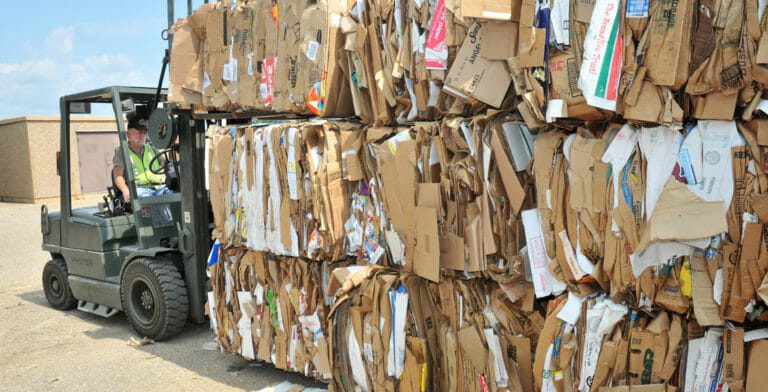¿Qué es la Espada Nacional?
Es posible que haya oído últimamente en las noticias las frases "espada nacional" o "espada verde". Se trata de una política en China que ha prohibido la importación de ciertos tipos de residuos sólidos, además de establecer estrictos límites de contaminación en los materiales reciclables.
This means that China will not accept shipments mixed with trash, the wrong type of recyclables, or low-quality recyclables like greasy paper goods. Officials announced the policy in Julio 2017, and the ban officially began on Enero 1, 2018. Besides the bans, China is reducing the number of import licenses, so fewer businesses will be able to import waste.
¿Qué importancia tiene?
For decades, China has been the world’s biggest importer of waste. This includes paper, plastic, and scrap metal from other nations. China processed these materials for reuse in export products. However, the National Sword policy has significantly reduced import rates. Consequently, this has created substantial logjams in the international recycling system. Recycled material is now piling up at materials recycling facilities (MRFs) or, even worse, ending up in landfills. This situation affects recycling efforts in the United States and abroad.
After you put something into a recycling bin, it is sent to an MRF. At MRFs, materials are sorted and contaminants removed. Contaminants include food, non-recyclable plastic, and hazardous waste. These cannot be recycled. MRFs prepare recyclable materials for sale and transport. The materials are then sold to facilities that reduce them to their raw form. They are turned into new products. For example, plastic bottles are melted down into another type of plastic. Slowing this process threatens jobs in the recycling industry. It causes recyclable materials to pile up and depresses the price for recycled materials due to excess supply.
¿Qué podemos hacer al respecto?
Aunque no pueda cambiar las decisiones políticas internacionales sobre reciclaje, ¡puede tomar medidas para ayudar!
- Educate yourself 📚. Do you know what objects are and are not recyclable in your area? 🌍 Contact your local Department of Public Works or MRF to learn more. The Springfield Materials Recovery Facility website lists what you can and cannot recycle. Check it out! 🖥️
- Don’t wishcycle 🚫. “Wishcycling” or “wishful recycling” refers to a consumer’s tendency to put something in their recycling bins because they believe it should be recycled, even if it is not on the list of approved materials for the local MRF. This action causes slowdowns at MRFs and exacerbates the problem. If you don’t know if something is recyclable and don’t have the time to check, throw it away. 🗑️
- Reduce! ♻️ Do everything you can to reduce your waste. Think reusable—whether it’s water bottles, forks and knives, food storage containers, towels, etc. Avoid using disposable options whenever possible. Additionally, when you can, buy in bulk—a single two-liter soda bottle creates less waste than a 12-pack of smaller bottles. 🥤
- Keep it clean 🧽. Wash out wasted food from your recyclables and sort them appropriately. Keeping your recycling clean helps your local MRF by preventing slowdowns in their sorting process due to contamination. This simple step makes a big difference! 🌟
¿Dónde puedo obtener más información sobre este tema?
The 2018 Spring WasteWise Forum features a joint program by RecyclingWorks in Massachusetts, the Massachusetts Department of Environmental Protection, and the US Environmental Protection Agency. The event includes a panel discussion and Q&A session with local MRF operators about improving recyclable material quality and reducing contamination.
You can join this conversation via webinar. Register for the webinar here.


